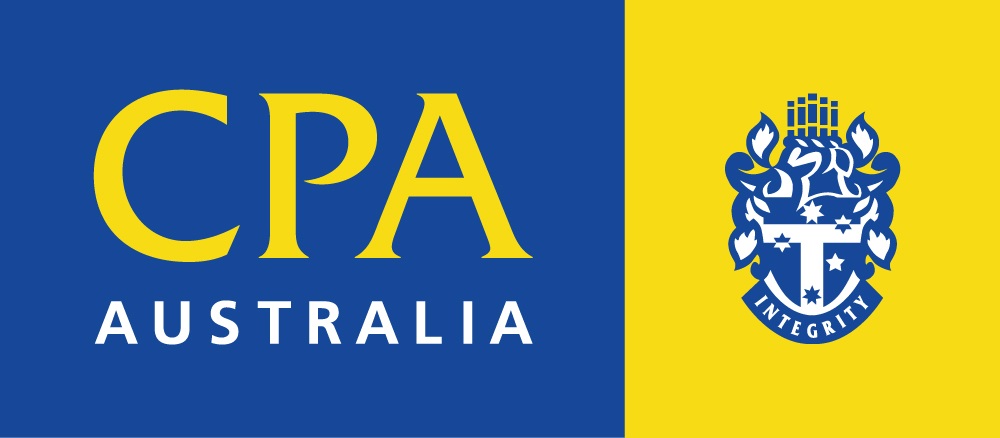Machine learning: partnering with accountants of the future
BusinessPromoted by CPA Australia.
The two co-founders of Future Crunch are on a mission to help people understand how technology can drive strategy.

Angus Hervey has little patience with many technology “thought leaders”.
“There are a lot of people out there talking about technology,” he says, “and almost all of them either exaggerate it or dumb it down – or they have a fear message around it.”
Hervey is a co-founder of Melbourne-based Future Crunch, which promotes informed and optimistic thinking about the opportunities presented by current technology.
Hervey and co-founder Tane Hunter’s audiences have ranged from MYOB to Interpol. They have also worked with groups in housing, construction, city planning, energy and local and federal government.
Despite the company name, Hervey and Hunter maintain that they’re not futurists. “What we do with Future Crunch is try to say what's actually happening, rather than what could happen or what someone ... says is happening,” Hervey says.
The pair sees technology as a force for good and optimism in technology as a powerful way of creating change. The more people start believing we can create a better society, the sooner we can start taking action, says Hervey.
The pair will present at CPA Congress in October 2019, outlining why and how CPAs might leverage new technology. “Technology is a layer over everything,” says Hervey. “If you're not engaged in this technology, then you're not going to keep up.
At the Congress sessions, they will demonstrate what the technology is doing, and provide lists of resources, recommended courses and institutions with particular expertise – a road map for becoming more adept at the powerful emerging tools.
Technological change targets accounting and audit
Hervey is an economist and the son of an accountant and a software engineer. He calls accounting a “really interesting mix of highly technical and highly human” and says the people side of the industry will only increase in importance. He says technological change often affects accounting early – but rather than disappearing, accounting jobs change their nature.
Hunter points out that the very first “killer app” was an electronic spreadsheet – VisiCalc for the Apple II, launched in 1979. He calls it “the canary in the coal mine”: it eliminated 400,000 US jobs, but created 600,000 more by making spreadsheet creation cheaper and more accessible. The result was that the accounting profession grew. He says artificial intelligence is likely to follow the same path.
Similarly, blockchain, with its distributive ledger technology, allows a form of real-time auditing, says Hunter. “What people are really going to have to work on is the human skills based on that when so much of that kind of stuff, like entering spreadsheets, is automated. I think focusing on your ability to connect with your clients is of the utmost importance.”
Machine learning and pattern recognition
The pair say the popular concept of artificial intelligence is a misnomer. It is usually applied to machine learning, which uses algorithms and statistical models to pick out patterns and perform tasks without explicit instructions. Hervey cites a favourite quote: “If it's written in code, it's usually machine learning; if it's written in PowerPoint, it's usually artificial intelligence.”
Machine learning has made an impact in medicine, finance, energy management and, of course, accounting, where Xero, MYOB, Intuit and others use it to speed up the input of data and then mine it for insights.
With the right software, a machine excels at pattern recognition in large datasets and can spot anomalies in a large dataset in a fraction of the time a human being would take to perform the task. “You're talking productivity gains of 30, 40, 50 per cent ... 360,000 hours saved by JPMorgan on their commercial loan agreements.”
Generating new insights through machine learning
Machine learning can be used to provide “the kinds of creative insights ... that human beings could never have even thought of”, says Hervey. This is the other direction in which machine learning research is going, pioneered mainly by the now Google-owned DeepMind.
“They're able to say ‘we're going to give the machine previous cases, or a huge new training set’, and the machine gives us things we weren't even looking for,” he says. DeepMind's work on games of Go and chess have provided moves “that human beings have never really seen before”, teaching even grandmasters to be better players.
Hervey says this is leading to new ways of thinking about some human activities.
“That's where I think it gets really interesting with accounting – and all kinds of other financial activity. We talk about fintech and financial investing. What kind of investment strategies are the machines able to devise once they have enough data? The kinds of investment strategies we can't really even imagine yet.”
Angus Hervey and Tane Hunter will speak at CPA Congress during October in Adelaide, Brisbane, Canberra, Hobart and Melbourne. Go to https://www.cpaaustralia.com.au/training-and-events/cpa-congress




You are not authorised to post comments.
Comments will undergo moderation before they get published.